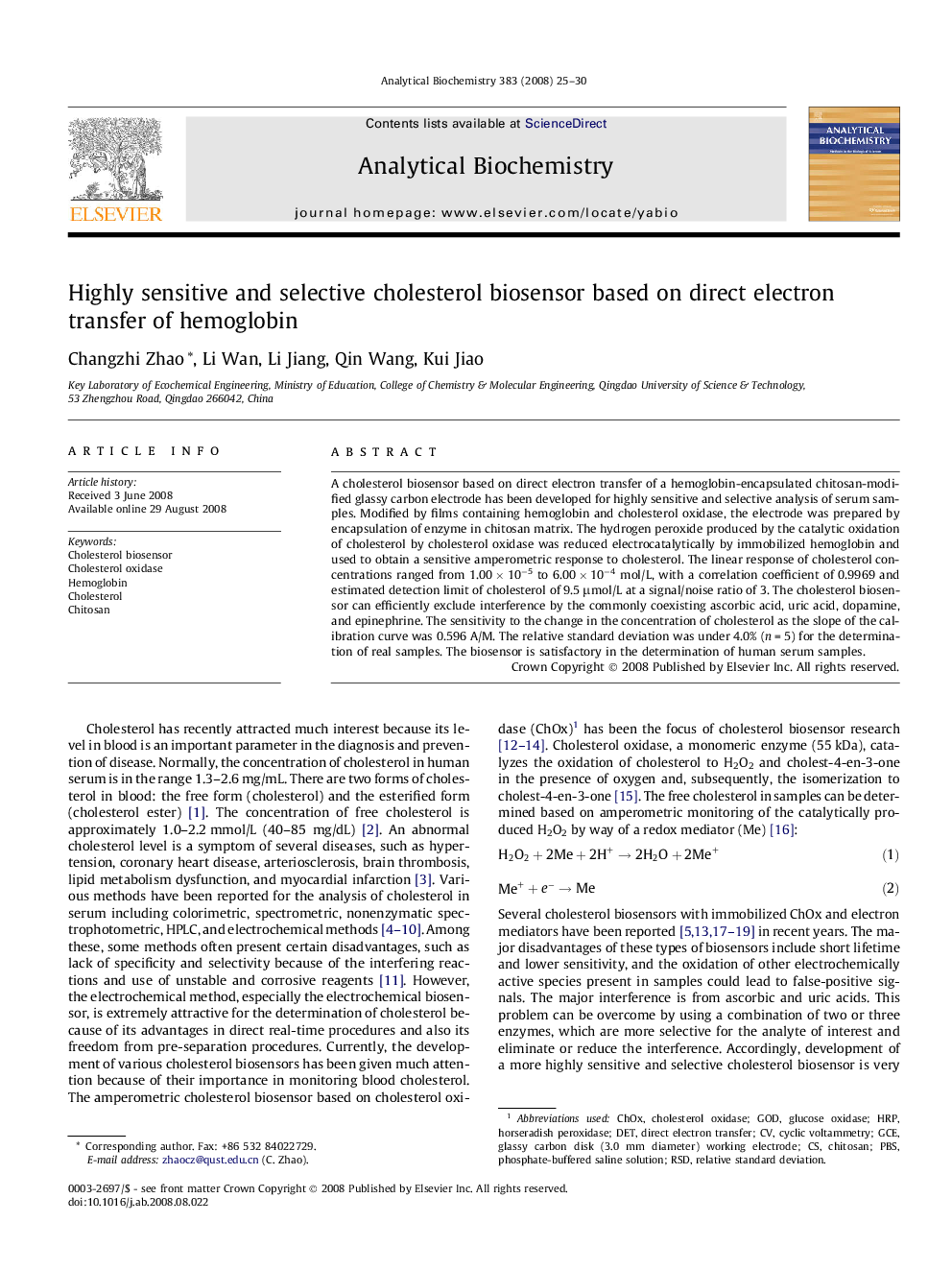| Article ID | Journal | Published Year | Pages | File Type |
|---|---|---|---|---|
| 1175124 | Analytical Biochemistry | 2008 | 6 Pages |
A cholesterol biosensor based on direct electron transfer of a hemoglobin-encapsulated chitosan-modified glassy carbon electrode has been developed for highly sensitive and selective analysis of serum samples. Modified by films containing hemoglobin and cholesterol oxidase, the electrode was prepared by encapsulation of enzyme in chitosan matrix. The hydrogen peroxide produced by the catalytic oxidation of cholesterol by cholesterol oxidase was reduced electrocatalytically by immobilized hemoglobin and used to obtain a sensitive amperometric response to cholesterol. The linear response of cholesterol concentrations ranged from 1.00 × 10−5 to 6.00 × 10−4 mol/L, with a correlation coefficient of 0.9969 and estimated detection limit of cholesterol of 9.5 μmol/L at a signal/noise ratio of 3. The cholesterol biosensor can efficiently exclude interference by the commonly coexisting ascorbic acid, uric acid, dopamine, and epinephrine. The sensitivity to the change in the concentration of cholesterol as the slope of the calibration curve was 0.596 A/M. The relative standard deviation was under 4.0% (n = 5) for the determination of real samples. The biosensor is satisfactory in the determination of human serum samples.
